On November 17, in Can Tho City, the Ministry of Agriculture and Environment coordinated with the People's Committee of Can Tho City and the International Rice Research Institute (IRRI) to organize the Conference "Implementing the MRV process and the process of producing high-quality, low-emission rice in the Mekong Delta".
Attending the conference were Deputy Minister of Agriculture and Environment Tran Thanh Nam; representatives of the People's Committees of the Mekong Delta provinces, international organizations, industry associations, enterprises, cooperatives...
The high-quality, low-emission rice production process provides synchronous guidance from seed selection, land preparation, sowing, fertilization, water management, pest control to harvesting, preservation and consumption, helping to reduce emissions, save costs, and improve productivity and quality of rice grains. The MRV process is designed to establish a mechanism for measuring, reporting, and verifying greenhouse gas emission reduction (MRV) in rice cultivation, creating a foundation for certifying and validating carbon credits in agriculture .
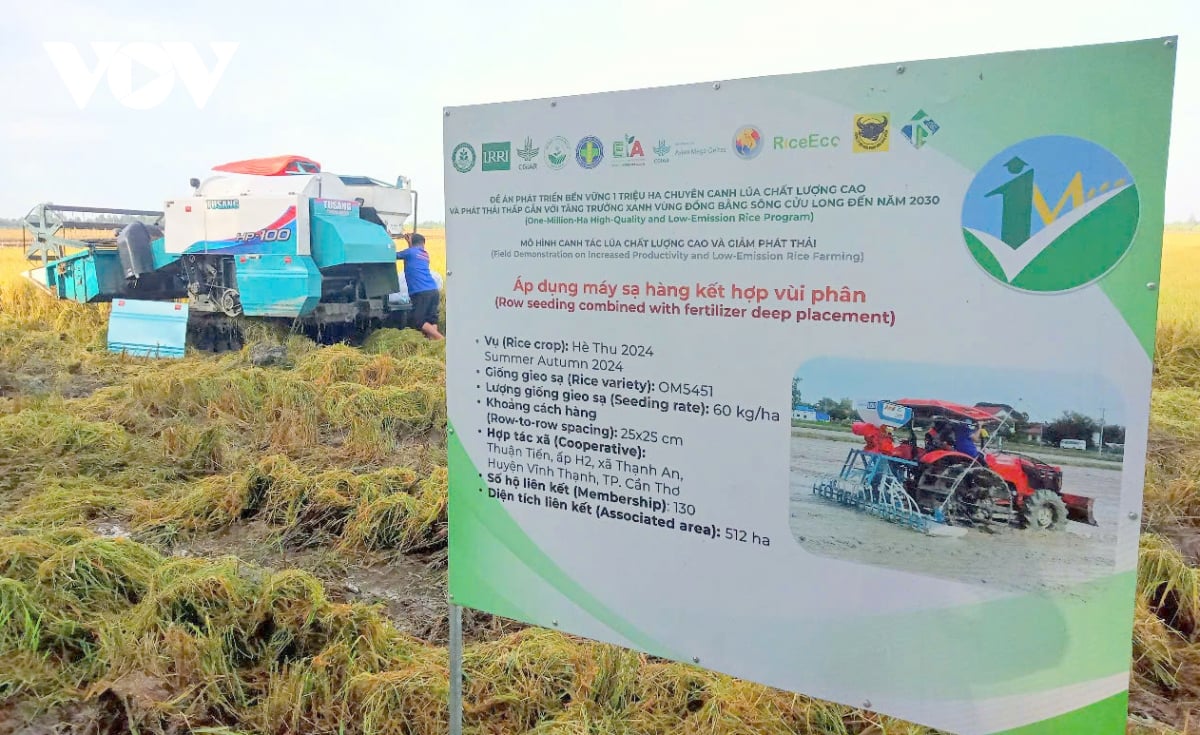 |
| The project of 1 million hectares of high-quality, low-emission rice in the Mekong Delta is to perfect the sustainable production process. |
Speaking at the workshop, Mr. Tran Thanh Nam, Deputy Minister of Agriculture and Environment, said that in implementing the Project of 1 million hectares of high-quality, low-emission rice in the Mekong Delta, it is necessary to perfect the sustainable production process. After 2 years of pilot implementation, the process has received many comments from scientists , businesses, organizations, and experts at home and abroad. On that basis, the Ministry of Agriculture and Environment has revised, upgraded, and perfected a set of higher technical requirements, suitable for the specific conditions of each ecological sub-region of the Mekong Delta.
 |
| Mr. Tran Thanh Nam, Deputy Minister of Agriculture and Environment, spoke at the conference. |
Deputy Minister Tran Thanh Nam said that over the past two years, institutes, schools and international experts have worked closely together in many localities to collect real data to complete Vietnam's first MRV process for the rice sector. The announcement of the MRV process is also a message to the international community that Vietnam has made substantial progress in implementing its commitments at COP26, with a set of measurement and verification reporting procedures built according to international practices and based on field data.
According to Deputy Minister Tran Thanh Nam, although the process needs to be monitored, updated and improved, this is an important milestone, marking a great effort over the past two years. The completion of the sustainable production process and the MRV emission process will be the foundation for widespread implementation in localities in the coming time.
"This is possibly the first process in Vietnam for measuring emission reductions, and is the legal basis between these two processes for localities and even for implementing mechanisms and policies to support these two processes. Secondly, it is also to announce to the world that this is both a pilot process, but the first measurement, reporting and appraisal process in Vietnam. This is the legal basis for international organizations to coordinate," Deputy Minister Tran Thanh Nam emphasized.
At the conference, experts, representatives from localities, research institutes, businesses and international organizations discussed implementation methods, practical barriers, application of digital training and electronic records for farmers, resource mobilization, sharing of carbon credit benefits and connecting sustainable rice consumption chains.
 |
| Delegates attending the Conference "Implementing the MRV Process and the Process of producing high-quality, low-emission rice in the Mekong Delta". |
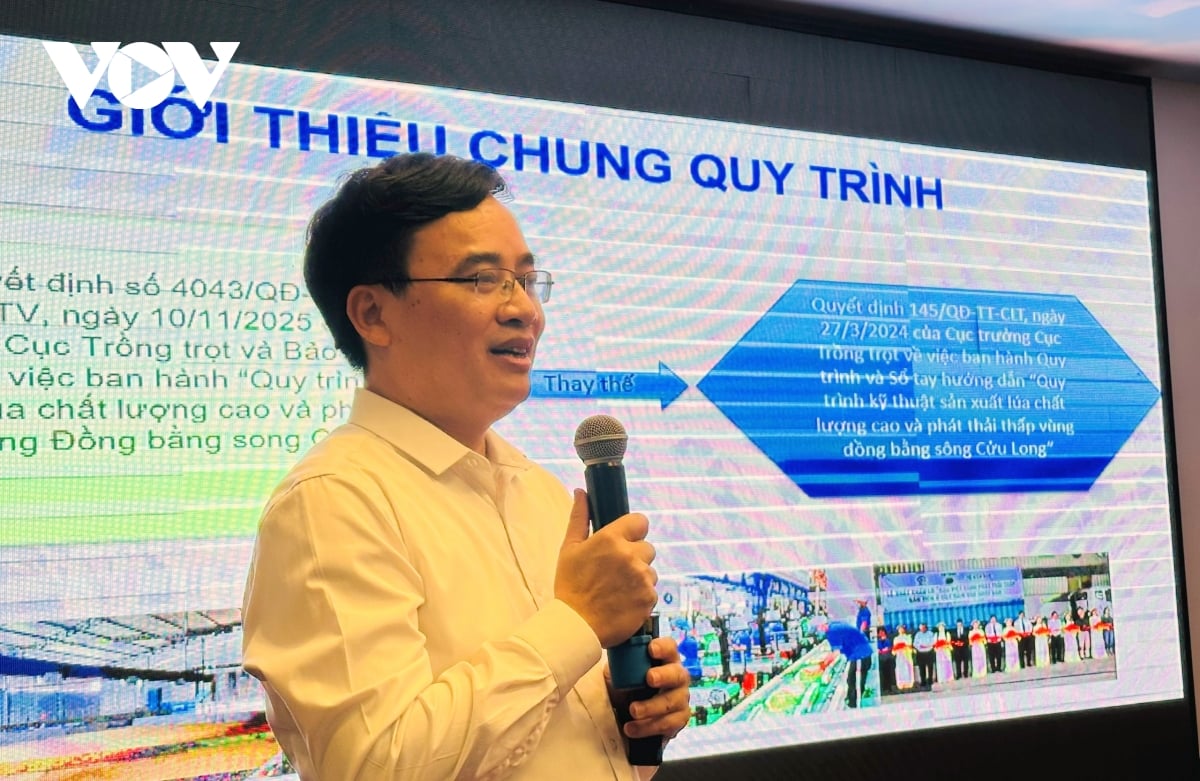 |
| Conference delegates speak. |
 |
| The announcement of the MRV process is also a message to the international community. |
According to the Ministry of Agriculture and Environment, applying these two processes is not only a technical requirement but also the first step in transforming Vietnam's rice production method from traditional production to green, smart, circular and low-emission production. The Ministry of Agriculture and Environment hopes that localities, enterprises, cooperatives and farmers will coordinate synchronously to turn this process into a new standard in rice production in the Mekong Delta. The conference agreed on a roadmap for pilot application from the 2025-2026 Winter-Spring crop, moving towards expanding the entire region from 2027, while at the same time building a set of tools to monitor and evaluate the effectiveness of emission reduction and economic efficiency for farmers.
According to Pham Hai/VOV-Mekong Delta
Source: https://baovinhlong.com.vn/kinh-te/202511/cong-bo-quy-trinh-giam-phat-thai-khi-nha-kinh-trong-san-xuat-lua-o-dbscl-6a31750/










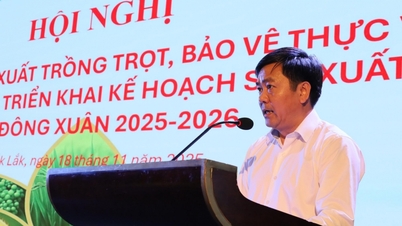

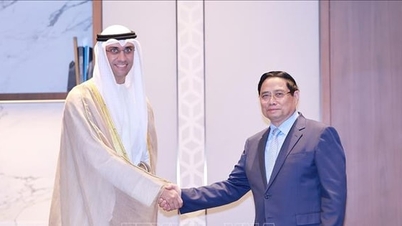












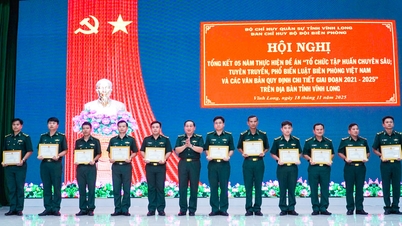



![[Photo] General Secretary To Lam and National Assembly Chairman Tran Thanh Man attend the 80th Anniversary of the Traditional Day of the Vietnamese Inspection Sector](https://vphoto.vietnam.vn/thumb/1200x675/vietnam/resource/IMAGE/2025/11/17/1763356362984_a2-bnd-7940-3561-jpg.webp)




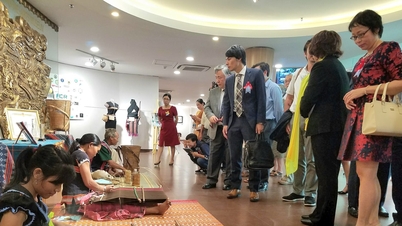







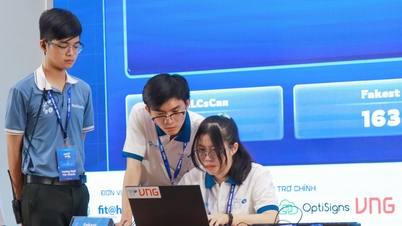


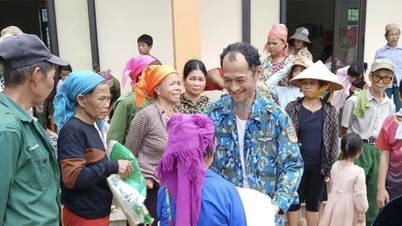












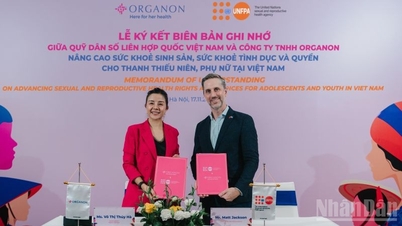










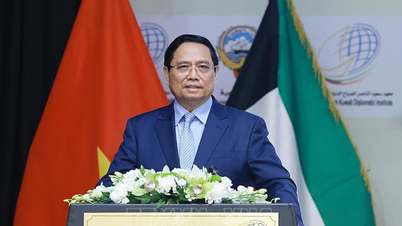

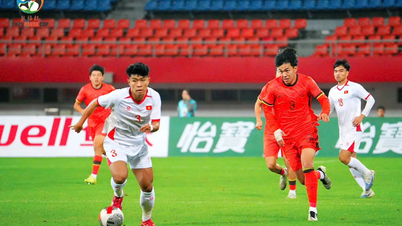













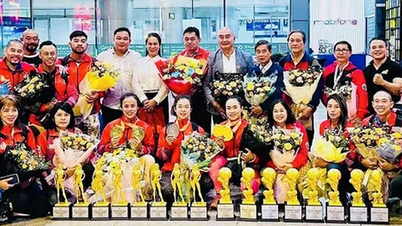


















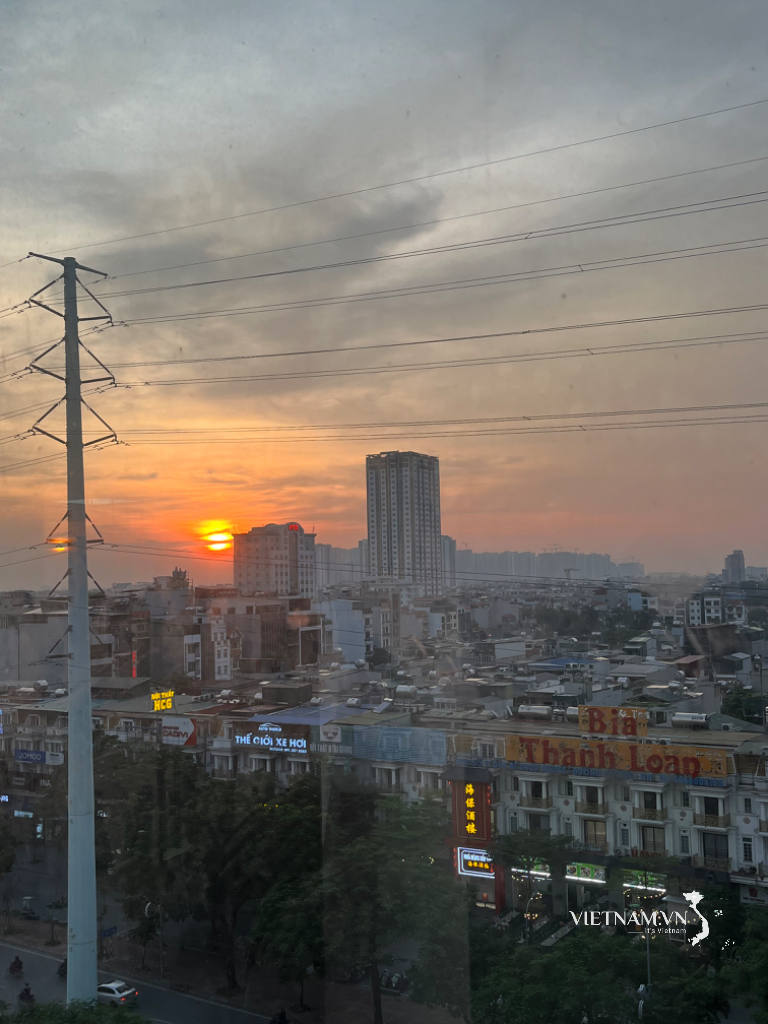

Comment (0)